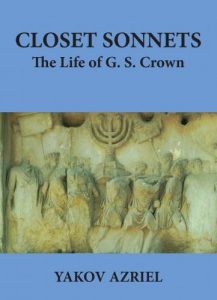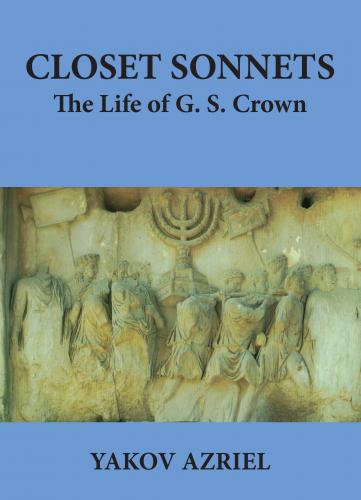 Closet Sonnets: The Life of G. S. Crown (1950-2021)
Closet Sonnets: The Life of G. S. Crown (1950-2021)
by Yakov Azriel
Sheep Meadow Press
98 pages, $19.95
CLOSET SONNETS is structured in one of those postmodern ways that remains intriguing. The text is supposedly the life work of G. S. Crown, a thoughtful if somewhat conventional scholar, professor, husband, and father. We are told in the preface to the sonnet sequence that Crown was born in 1950, the same year as Yakov Azriel, the author. Crown is to die in 2021; only then will his family find nearly a thousand sonnets that concern his closeted desires for other men. The preface claims that his family was “unaware” of his homosexual life, but they don’t seem particularly shocked by the news. In fact, the family goes to the considerable trouble of culling the work down to about 150 poems and getting them published. (So much for Crown’s lifelong certainty that his family would reject him if they knew he was gay.) If this weren’t complex enough, it is important to note that the name “Yakov Azriel” is an invention of the author, who was born Gerald Rosenkrantz, in Brooklyn, and only adopted his present name when he moved to Israel.







